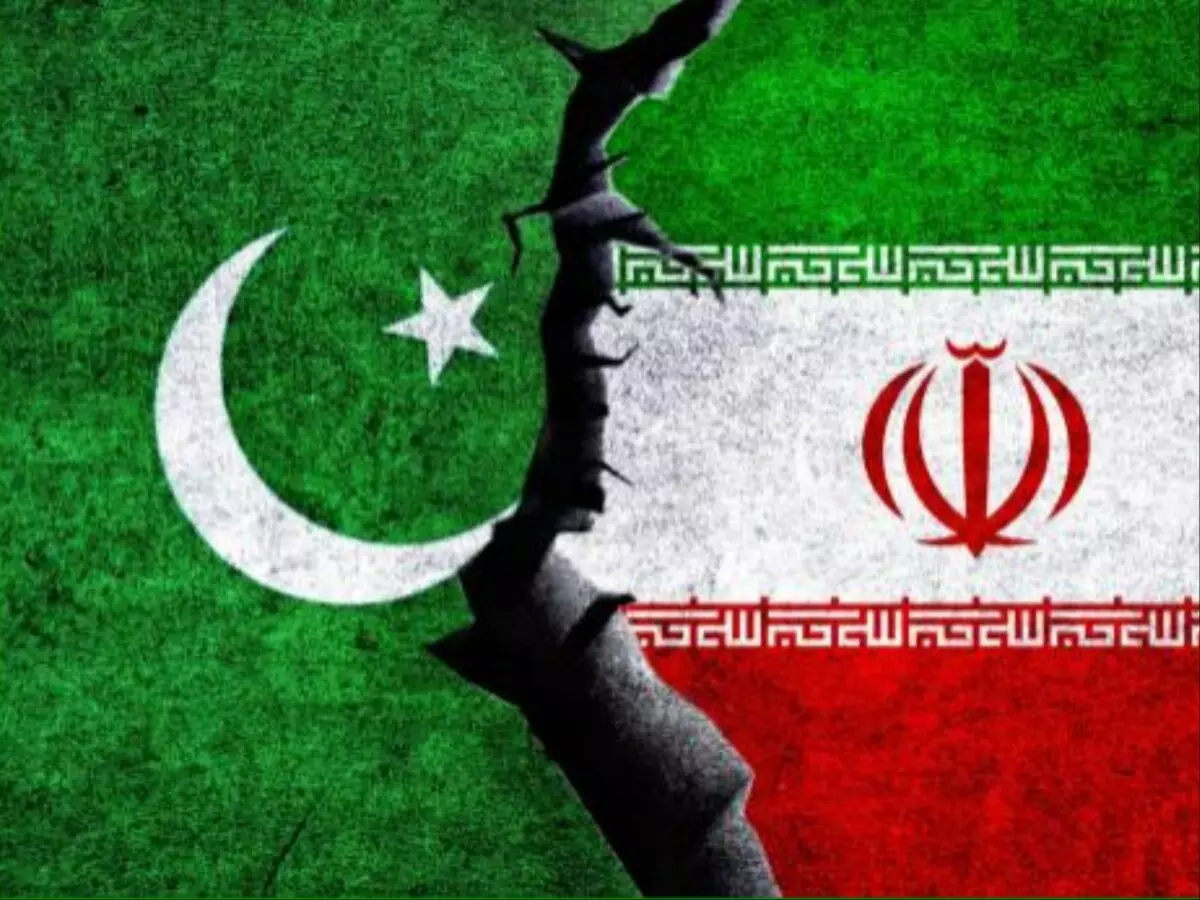Fraught with perils
Pakistan and Iran must settle their disputes amicably to prevent further escalation in already volatile conflict-ridden West Asia

In these very columns, it was explicitly written some time back that Iran was very likely to be drawn into the ongoing military turmoil in West Asia after the terror attack, allegedly by Islamic State of Iraq and Syria (ISIS), in Kerman on the occasion of the death anniversary of former military and intelligence chief General Qassem Soleimani. However, what is now significant is that the Iranians struck (January 16) targets inside Pakistani territory, which was described by Iranian authorities as a stronghold of the Jaish-al-Adl — a Sunni terrorist group claiming the lives of two minors. Intriguingly, earlier, on January 15, Iran had undertaken similar strikes in Iraq and Syria, hitting what it said were spy headquarters and terrorist bases hostile to Iranian security interests. Reacting rather sharply, in a visibly retaliatory move, Pakistan recalled its Ambassador in Tehran and suspended all high-level bilateral visits that were in the pipeline. Also, bilateral ties between Iran and Pakistan reached a new low when Pakistan expelled the Iranian Ambassador in Islamabad and, in a blatant show of ire, stated that the Iranian envoy would not be allowed to return to Pakistan. Meanwhile, the ongoing escalation between the two warring neighbouring countries is clearly engaged in the escalation, and there are no chances of any abatement in the near future.
Pakistan’s initial reaction was that the violation of Pakistani territory was totally indefensible; such unilateral actions—especially resulting in the loss of innocent lives—may do irreparable harm to bilateral ties. This was the statement issued by the Pakistani Foreign Office (FO). Furthermore, the activity of militant groups on both sides of the border is one of the biggest irritants in the bilateral relationship, and Pakistan and Iran need to address this issue in a “mature” manner to ensure the situation does not worsen further. Iranian officials had claimed the assailants entered from Pakistan. There were also two attacks last year, apparently originating from Iran, in which several Pakistani troops were killed. China, which enjoys cordial relations with both states, has urged “both sides to exercise restraint” and has offered to mediate to end the standoff.
Interestingly, what added fuel to the fire was Pakistan’s retaliation in targeting the 'terrorist' hideouts inside the Iranian border, killing nine persons and further heightening the tension. Pakistan’s Operation, codenamed “Marg Bar Sarmachar,” has given some consolation to Pakistan’s polity and security establishment, showing that it had not caved in to the misadventurism of Iran. With the election in Islamabad just concluded, this military retaliation may provide some succour to the Pakistani populace too, who are already seen to be losing credibility in the Pakistani security agencies for facing repeated terror attacks.
Against the backdrop of the escalation of tension in Islamabad-Tehran ties, Pakistan has started strict monitoring of all flights from the West, including Iran. The Pakistan Civil Aviation Authority (CAA) is monitoring air activities over the western border, and the authorities have been directed to remain alert. Obviously, Pakistan is reeling under an apprehension of likely onslaught or covert action by Iran-sponsored acts of deadly strikes. Air traffic control has also been directed to gather details of all Western flights, including from Iran. Previously, there was no monitoring of flights coming to Pakistan from the West.
Arguably, Iran’s attack inside Pakistani territory, coming at a time when Israel’s war on Gaza could escalate regional tensions, perhaps deserved a mature response, according to Mosharraf Zaidi of the Islamabad-based Tabadlab think tank. Zaidi opined that Pakistan’s response so far is exactly what it should be, as the Iranians were looking to provoke an unnecessary reaction. The real risk right now is the wider dangers of Pakistan being drawn into a conflict that it is not a primary actor in, and will be distracted further, as claimed by Zaidi.
Another viewpoint shared by Kamran Bokhari, senior director for the Washington DC-based New Lines Institute for Strategy and Policy, feels this escalation may lead to potentially longer-term conflict for Pakistan. After Afghanistan on the West and India on the East, this could possibly open conflict on a third border, and Pakistan does not seem to be ready for that. This view does not seem to be wide off the mark.
Ihsanullah Tipu Mehsud, who is a director at The Khorasan Diary, a news and research portal that tracks and analyses security issues in the region, expressed his surprise at the escalation by Iran despite the continuing security conflict in the Middle East region. He said Iranian actions would have a long-lasting effect and implications on bilateral relations, in the realms of both politics and security. Further, according to Tipu, by carrying out attacks inside Pakistan, it has given a kind of justification to Pakistan to follow the same path in response to target the sanctuaries of anti-Pakistan militant outfits, which Pakistan considers are based in Iran or even elsewhere. Also, Pakistan may be seeking “greater alignment” with the United States, Saudi Arabia, and Turkey according to some analysts on the pretext of Iran’s action. On its part, Tehran sees Pakistan as a pawn in this high-risk brinkmanship with Washington.
In the foregoing, Iran's action against Pakistan could be part of a larger muscle-flexing due to the ongoing Israel-Hamas long-drawn confrontation. It is also possible due to intensified anti-Iran (also anti-Shia) activities by Jaish-al-Adl. Whatever the case, unless both sides agree to peace and resolve the tension amicably, the region will be fraught with peril, threatening peace and further adding more gunpowder to the inflamed West Asia military conflict with dangerous ramifications.
The writer is a retired IPS officer, Adviser NatStrat, and a former National Security Advisor in Mauritius. Views expressed are personal




